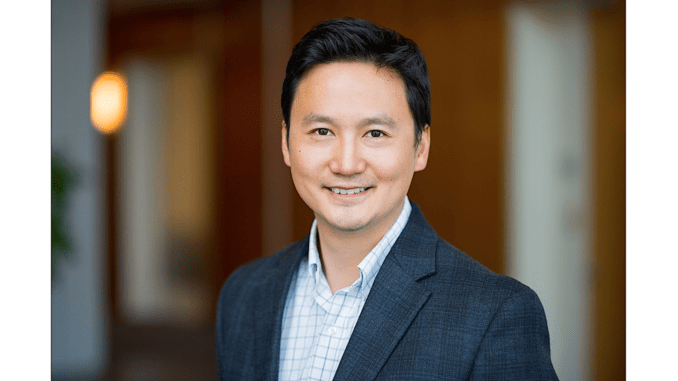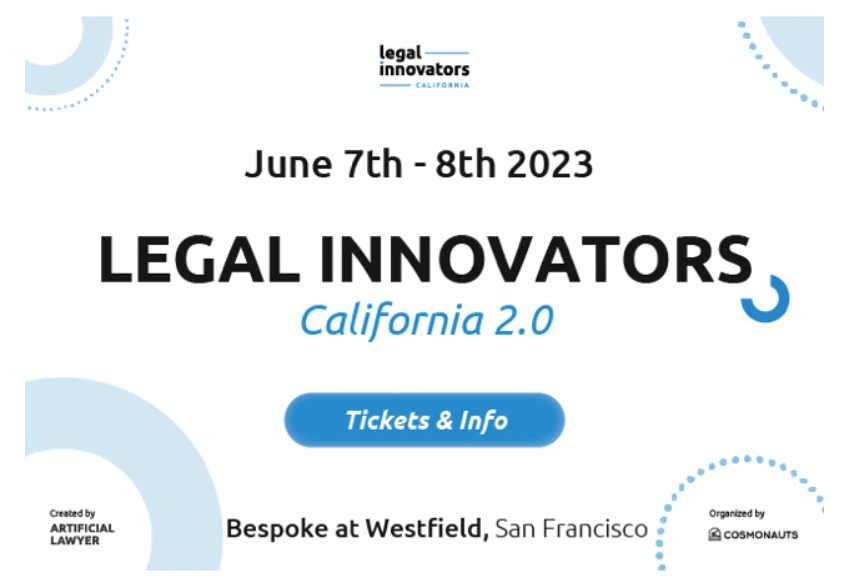
This week’s profile showcasing the speakers at the Legal Innovators California Conference this June 7 & 8 in San Francisco is with David Wang, Chief Innovation Officer at Wilson Sonsini.
– When did you first hear the term ‘legal innovation’ and what did you think at the time?
I didn’t hear about this term until I started trying to figure out what to call the emerging role I was organically taking on at my firm. Coming from the Silicon Valley context I have always just thought of what I did as ‘technology’.
– What is your role now?
I’m Chief Innovation Officer for Wilson Sonsini. I am in charge of our technology strategy, product roadmap and technology partnerships.
– Why did you move into this field?
I have always loved technology and the power it had to change the world, which is why I represented tech companies my whole practicing career. At the end of the day it wasn’t enough for me. I wanted to design, build, and implement those technologies rather than advice the people who are doing it, that’s why I transitioned from the ‘law of tech’ to the ‘tech of law’.
I saw an emerging need in the legal industry which allowed me to leverage my existing experience, network, and position to smoothly move into a more directly tech-centric career path.

– What is the most rewarding aspect of your job?
To be able to see my idea go from napkin sketch to being built, deployed and used at one of the leading law firms in the world. There is still a long way to go for our industry to catch up to the rest of the modern world, but I feel like I’m making a meaningful contribution to that mission and that is very rewarding.
– If you looked into a crystal ball, how much do you think the everyday practice of law will change in the next five to ten years, especially given the changes in AI?
The future is already here, it is just unevenly distributed. This is one of my favorite ‘Silicon Valleyisms’.
The legal industry is a trillion-dollar business and one of the most traditional. The forces that resist change are very strong and includes regulatory, business model, as well as very particular characteristics that are unique to our industry. It will take time for change to happen.
Having said that, change will likely happen more rapidly than you think once a tipping point is reached in a particular area. I have already witnessed several shifts in my own relatively short career that, taking in the context of the industry as a whole, is probably not meaningful, but in those specific practices represents a complete disruption. It is just that the entire legal industry is highly fragmented, so this process is occurring unevenly.
– What are the biggest challenges legal innovation now faces in the current climate?
Lack of results. Real projects that are showing results that are strategically meaningful will not be materially impacted. Innovation theater is going to suffer significantly. Meaningful projects that take a long time to achieve scale/returns will also suffer, but will likely survive.
– And what are the greatest opportunities now for change across the legal sector?
Standardization. There is an increasing appetite for standardization through industry-wide collaboration, which is the hardest thing to achieve but has the most potential for transformative change.
Law is the most natural place where things that are substantively the same should be expressed in law and practice in the same way. Ius est ars boni et aequi, it is up to all of us to work together to uphold this standard, and no technology will be able to solve this problem if we are all working at cross-purposes.
– And finally, what advice would you give to anyone wanting to get into the field of legal innovation and legal tech?
Find a problem you want to solve in the legal world and do not give up until you have solved it.
—

Thanks David for the wise words. Looking forward to hearing you speak at the Legal Innovators California conference in San Francisco, June 7 & 8.
If you would like more information about the event please see here.
And to get tickets for the landmark legal innovation conference in San Francisco this June please see here.